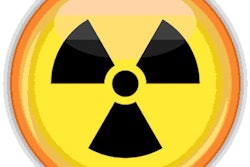
The U.S. National Institutes of Health has awarded biotechnology firm Cancer Targeted Technology (CTT) $1.4 million in the second year of a grant to fund development of a radiotherapeutic prostate cancer drug.
The three-year Small Business Innovation Research phase IIB grant started in 2019 and totals $3.3 million. This second year of funding supports the current clinical trial of CTT1403, a radiopharmaceutical that binds to prostate-specific membrane antigen (PSMA). CTT1403 is labeled with the radionuclide lutetium-177 and once delivered to the tumor, destroys tumor cells.
The trial is led by Dr. Rahul Aggarwal of the University of California, San Francisco and is a 30-40 patient dose escalation/expansion trial in men with advanced castration-resistant prostate cancer that is halfway through the initial dose escalation phase.
So far, the researchers have found no safety issues with CTT1403, and pharmacokinetic data support the longer circulation time of the radiopharmaceutical in the bloodstream as compared with other agents currently in clinical trials, the firm said.
Dr. Cliff Berkman, a professor at Washington State University, conceived of the chemical structure for CTT1403, which binds irreversibly to PSMA and enables rapid uptake of the drug within the tumor. The drug is also engineered to increase the circulation time in the body, which increases the drug dose that accumulates at tumor sites.
In related news, the companion PET diagnostic imaging agent to CTT1403, CTT1057, is undergoing further development for prostate cancer by CTT's licensing partner AAA/Novartis. CTT1057 and CTT1403 serve as a theranostic pair to diagnose and treat tumors that express PSMA, and they are being used together in the current clinical trial, the firm said.




















